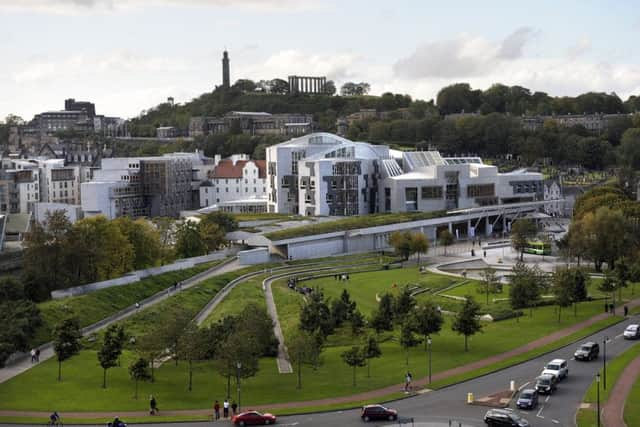Scots may face tax hikes and longer working lives
Analysts at the Institute for Public Policy Research (IPPR) Scotland said additional rises would be necessary in the absence of a dramatic turnaround in economic performance north of the Border.
Their research found the day-to-day spending budget is expected to fall by £250 million between 2018/19 and 2019/20.
Advertisement
Hide AdAdvertisement
Hide AdHowever, with commitments to increase NHS spending and protect police budgets, non-protected departments will see falls of £350m in 2019, which the IPPR Scotland says is a 2.7 per cent cut in one year.


The IPPR’s warning came after the Scottish Government proposed income tax rises in its draft Budget for 2018/19 that will prevent spending cuts for most departments.
But the think tank’s calculations show this will only be sufficient to end the cuts for one year. Further tax increases or stronger than forecast tax receipts will be needed to protect public services in Scotland beyond 2018, IPPR experts said.
Russell Gunson, director of IPPR Scotland, said: “The Scottish Government’s draft Budget has proposed income tax increases in Scotland from April next year.
“However, as welcome as the tax rises are, our analysis shows that they will only be sufficient to soften cuts for one year.


“Serious cuts to public spending remain just around the corner. Without further tax increases the year after next, or a stronger economy, deep public spending cuts in Scotland will restart in 2019.”
Mr Gunson added: “By outlining a one-year budget, with one year’s worth of tax plans, we are not yet clear as to what the Scottish Government’s tax and spending plans are beyond this year. However, with cuts that could reach £350m for non-protected departments over just one year, there will be further tough decisions that will need to be taken this time next year. Without stronger tax receipts, additional spending at the UK level or further tax rises these income tax changes will only be enough to soften the cuts for one year.”
The IPPR comments came on top of a warning from a leading economist who said Scots could face the prospect of longer working lives to offset the country’s flatlining economy and an ageing population.
Advertisement
Hide AdAdvertisement
Hide AdThe fall in the working population will start to bite over the next decade, with little sign of any improvement in the low growth experienced since the financial crash, according to Professor David Bell of Stirling University.
The newly-established Scottish Fiscal Commission, the independent economic watchdog set up by the Scottish Government, set out a gloomy picture for the economy in the years ahead. The body, headed by former Lloyds chief Susan Rice, forecast growth would lag behind the rest of the UK at less then 1 per cent in its inaugural report last week.
The population aged 16 to 64, which is most likely to be in work and driving the economy, will start to shrink from 2018 onwards, the SFC warned.
Prof Bell said the analysis amounted to a “dismal” outlook for Scotland.
“The issue that Susan Rice was talking about in terms of the gradual shrinkage of the working age population hasn’t really kicked in yet – it will kick in in a big way over the next ten years or so,” he said.
“And it will be important for the Scottish Government to be looking at policies to try to extend people’s working lives so that the number of people who continue to work beyond 65 is increased.”
Mr Mackay has insisted the growth package in the Budget will see spending on the economy increase by 64 per cent – an increase of £270m – in 2018/19. Spending on economic development last year was equivalent to £193 per head in Scotland compared to £88 per head in the UK as a whole, ministers said.
“We are absolutely committed to supporting business and growing Scotland’s economy particularly in the wake of Brexit uncertainty and UK government austerity – and our investment per head on economic development dwarfs that of the UK government,” Mr Mackay said.
Advertisement
Hide AdAdvertisement
Hide Ad“We are delivering a record £2.4 billion investment in enterprise and skills, a £4bn commitment to infrastructure and £600m to broadband, ensuring every home or business premise in Scotland has access to superfast broadband.
“This is a good budget for business, for investment and for taxpayers and will ready Scotland for the future.”